ODE TO ONE WATER
University of Miami students in Judy Hood’s Composition classes write in response to One Water
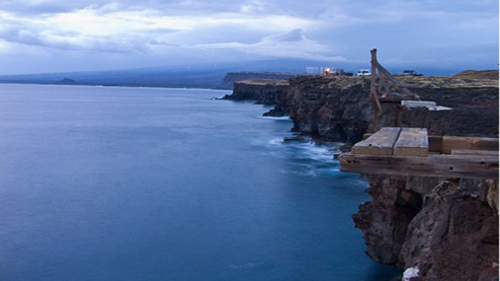 | |
KaLae
|
Armitsar
|
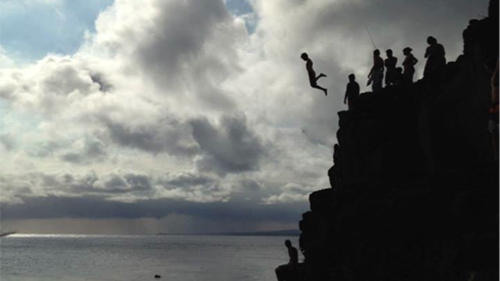 | |
Water washes it away
|
Without
|
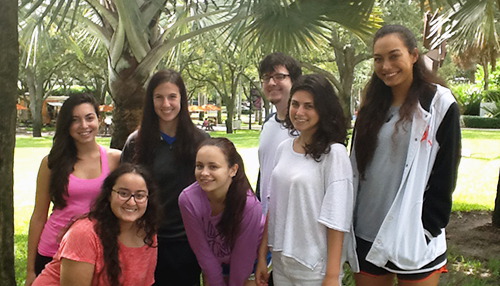 | |
Significance
|
Five Seven Five = One
|
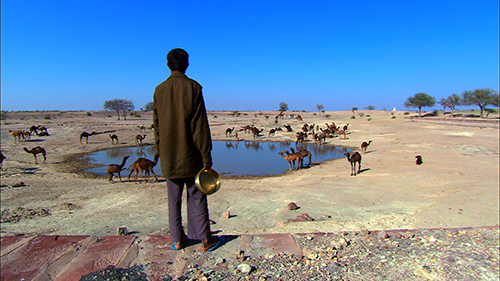 | |
Wish
| More or Less
|
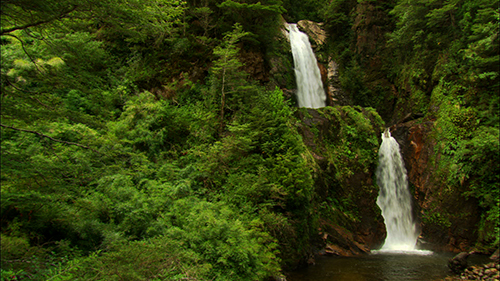 | |
Open/Close |
The Gift of Water |
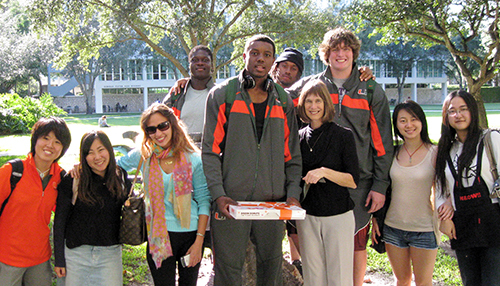 | |
Without Water, Without Life
|
Moving Pictures
|
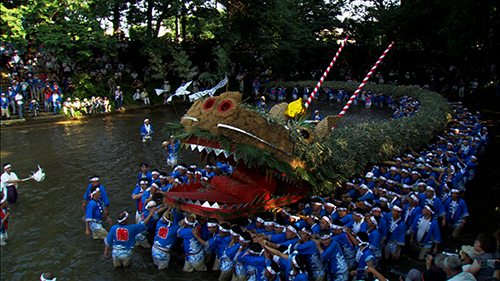 | |
In Common
|
What We Need
|
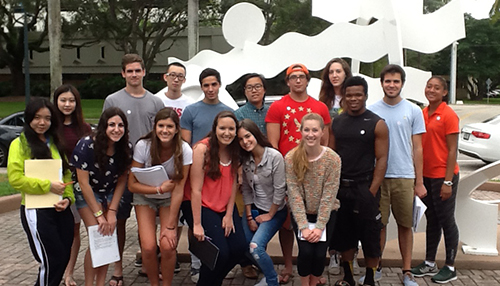
Moving Pictures
I am diving under the river. Everything around me is tranquil and peaceful. Randomly, some unknown fishes swim by. I feel that I can touch them through my eyes. While I am under the water, I feel a sense of belonging. I feel safe. I feel I am home.
I swim to the surface and come up to the ground. I see children playing on the hill. They are extremely excited when the fog is coming because that means they will have the fresh water for the day and they can play with the nets that capture water through the fog. The smiles on their faces purify me, making me realize that happiness is a state of mind, even if it does not match the state of being. True happiness comes directly from our hearts whether we are poor or rich, healthy or sick. To the children, water probably is worth much more than money and gold. I cannot stop thinking that when I was at their age, I would cry nonstop just for a toy car or a bag of candy. I wish I could relive my childhood, enjoying the simplicity of life, appreciating Nature’s simple pleasure.
I follow water as it flows around the world: USA, Ecuador, Peru, Africa India. People are bathing in the river that is filled with trash and dead bodies of animals, and they are brushing their teeth using shaped branches. A mother showers her son, washes his clothes, and waters the tree in her yard using the same pot of water that she walked hours to get from a well. To the contrary, people in developed countries are fishing by the sea, cruising around the bay in their yachts.
I guess life is never fair. One craves for water, while the other one is squandering it. I want to cry for the people struggling to survive in the cruel world where water is worth more than gold and for the people living in a world where they do not even understand what real happiness is.
When the movie ends, I know my life may be forever changed. I cherish water more than ever in my life. One World, we share One Water.
Kangyu Huang
One Water: Re-Awakening
I sometimes take 15 minutes to shower for no particular reason. I take my time washing my hair and bathing myself, and I think about life. I let the day’s worry go down the drain. It’s ironic that the main worry for the people in this documentary film is the fact that they have no sustainable water resource, for drinking or for everyday uses. Some have to go down mountains to a stream and climb back up with a heavy jug of water for just a minimal amount of water. Meanwhile, all I have to do is a turn a knob.
I am not ignorant to the problems depicted in this film; I know that this has been going on. I myself come from a country where more than half of the population lives in this situation. Yet I continue to take long showers.
I constantly worry over the environment and help out in charities that deal with and try to find solutions to environmental issues. But the hypocrisy of my acts amazes me. How can I expect to change anything when I can’t even take my own advice and do what I believe? I think I’ll cut back on my showers— considerably.
When I left Paraguay, the country was a mess. For some reason, the rivers had flooded more than in other years. Whole communities had their one-room houses under water. They had to row themselves to their homes to get their belongings— or what was left of them. I know this, because I went to a community thirty minutes outside of Asuncion, the capital city where I live, and a woman working at the only school available gave a ‘tour’ of what the community was going through.
We talked to families and played with children, most of whom had to move in with friends because their houses were under water. Three families of six were living in one or two room, run-down houses. They had no running water and many cleaned themselves and their things in the water from the flood. This was going on thirty minutes from where I lay in my comfortable bed and sat in front of a nice warm fire when it was cold, and took long, hot showers.I was utterly shocked.
These people had lost everything, but they still invited us inside their homes, and they shared their food and stories; they smiled and laughed. I thought to myself that I have cried and cursed the universe for much less. Yet, these people, on the brink of starvation were still smiling, even though they should have been contributing to the flood with their tears.
Cecilia Ray
Not So Easy to Ignore
It’s easy to ignore something that you cannot see, but the documentary film, One Water, takes away that security blanket of ignorance. You see how the lack of water leads to the downfall of businesses, and more importantly, the loss of life.
It is true that the individuals inhabiting the Earth today are extremely intelligent, and the technology available today is incredible. So isn’t it possible that in addition to focusing on the iPhone 6, we could concentrate on how to improve the lives of those who need help and do not have the resources that we do? In addition to inventing 3D TV’s we could be making inexpensive water filtration systems that the less developed countries can utilize.
We need to sort out our list of priorities by putting the needs of others before our own superficial desires. Raising awareness about water is a giant step. However, it is only the first step. This film will hopefully spark conversations that initiate action. We can no longer idly sit by and, by doing nothing, say it is okay that people live in such harsh conditions.
Now is the time for action.
Shannon Booth
Harsh Reality
At the University of Miami, we are constantly surrounded by water, various fountains around campus and canals that spill into Lake Osceola. We also have easy access to water in our dorms for hygienic purposes. As I sat in the Cosford Theatre, with my plastic water bottle I bought from Publix the night before, I found it difficult to see the daily life on the Ganges River captured in this documentary film.
The water was dark and murky with debris and litter floating around. I have done research on this river and know that it is riddled with disease due to raw sewage. But images are more powerful than words. Reading a news article about the contamination on the Ganges River is significantly less powerful than seeing people bathe and drink from this river. When I saw the images of children drinking this contaminated water I felt disgusted.
I kept on thinking about the Publix supermarket water bottle right next to me and the case of water in my dorm. I felt guilty for sipping my water while watching others suffer. It is a very harsh reality that we live in a world where there is such a separation in wealth and that wealth can determine who has clean water and who doesn’t.
Poverty touches every part of the earth. The difference between first world countries and third world countries is that first world countries have a system of aid for the impoverished. The homeless can seek sanctuary in homeless shelters and have access to food and water. The people of India lack a basic human necessity. Water is the essence of life. Without this simple molecule, life would cease to exist.
Yet India funded a 75 million dollar Mission to Mars program, but neglected to attend to their citizens’ needs. It seems quite sacrilegious the way people treat this body of water. This holy river, essential to the Hindu religion, essential to life itself continues to be polluted.
Eric Cecil
Wasted for Fame, Needed to Sustain
What would you do for an extra Comment, Like, Favorite, or Retweet?
In back yards all over the globe, buckets full of gallons of ice water splashed down on willing participants, while their friends stood behind the camera giggling. And when the video didn’t turn out the way they wanted it to? They walked back to the hose, filled up the container, and opened up another bag of ice to redo the challenge.
This social media phenomenon called the Ice Bucket Challenge was created to raise awareness and money for a serious, but little-known disease called ALS. Friends and family all nominated each other to do the fun challenge of pouring a bucket of ice water on themselves, and if they failed to complete and upload the video on social media in 24 hours, they had to donate one hundred dollars to the cause.
Though the idea was charitable, think of the way everyone went about this. By helping one cause, we were all aggravating another: the accessibility to clean water. An event such as the ALS Bucket Challenge shows how wasteful we are as a culture when we can dump gallons of water just to get a chance at small-scale fame and popularity.
Courtney Hamilton, Tiffany Park, Oleksiy Abramovsky
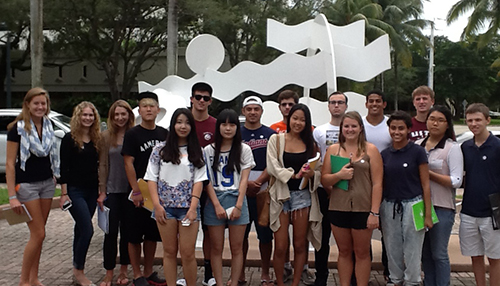
THE JOURNEY OF WATER IS ROUND
One Water. This short, silent documentary evoked appreciation, respect, and even empathy that rippled through its audience, my class. The film illustrates how people from several different cultures interact with water. We saw a woman and her daughter who walked in harsh heat, daily, to fetch water. When they returned to their home, this water was savored. Even the last drops were used to nourish a frail tree that grew nearby. We watched children playing with a giant net, the function of which was to gather drops of water from the moist mist in the mountains. In another place, we witnessed people and animals drinking and washing together in a dirty river.
These scenes spoke to my classmates and to me. I don’t think anybody in the class had seen anything like this before. We were made more aware of how important water is, not only as a resource, but as a source of life.
“One Water shows you outside of your world and makes you think about what you are.” This is class member Junior Alexis’ response, and it could not be more accurate. One Water is a fountain of information. It enlightens its audience, and encourages them to reflect upon their own experiences and compare them to the stories these images tell. It is through this dialectical relationship that everybody in the class came to find their individual water stories.
Jenna Moorhouse
My impression of my Dad is of a serious and scary person. In my head, I don’t really have any memory of my Dad and me spending fun time together. Most of the memories I have with my father relate to golf. When we practiced together, he was very strict. For example, whenever I made mistakes, he would yell at me. In competition, when I shot high scores, he got upset. But one memory when I had so much fun with my Dad is when my family went to the beach.
It was a summer vacation when I was in elementary school. My family and one of my friends headed to the beach near my city, Fujieda. I was only expecting to play and have fun with my friend, but it turned out I was having so much fun with my father. My Dad used to surf when he was in college, and, according to him, he was a good surfer. So when we arrived at the beach, he asked me, “Hey Rika, do you want to get on the wave?”
I was a little scared of waves and even of going into the water because I didn’t want to get drowned. He said, “You will be fine. I will be with you.” So he put me on the surfboard and took me into the water, out to where I could not reach the bottom of the ocean. I was pretty worried because I knew from past experience that the salt water would hurt my nose, and I was afraid.
I was lying on the board, holding on with my hands on either side. My Dad was finding a wave that was big enough for me to surf back to the shallow part of the water. Suddenly he pushed my board hard, and then when I looked behind me, a big wave was coming. I remember that I said, “Oh my god…” All I could do was just hold on tight to the board. The wave kept coming toward me, but somehow my board was speeding up as fast as the wave. It was so much fun to feel the wind and move fast; I had never experienced moving that way before. After that my Dad put me on the wave many times. He was the opposite person in the water from how he was at practice. In the water, he tried to let me have fun, and I did.
This is one of the few fun memories that I had with my Dad. The water became a tool to connect my father and me. I was able to see that he was not only a scary person, but was also someone I could have fun with. Even though he still would yell at practice, I knew that he had a softer side. I knew that water was dangerous from having choked on it many times before, but after surfing with my Dad, water became one more fun thing to play with. I don’t play with water that much anymore, but I always have this memory that makes me realize that things may not be what they seem. Like the water, people may be different beneath the surface.
I had never thought I could have fun with my father this way before. My family is Korean, but we are living in Japan. We speak Japanese as our first language, and I don’t even speak Korean at all. However we keep the Korean tradition. My father and grandparents raised me up to listen to an adult, especially my father. Many Korean families are this way. The person who has the most power in the family is the father or grandparents. That is why in my head, I had my father equal to a scary person. But this experience with my father and water erased this thought. Somehow the water let me see more of the Japanese side of my Dad, and I appreciate that I am able to experience two different cultures.
Ri Hyang Park “Rika”
My World
A long time ago, when I was much younger, probably just about six years old, I was introduced to the world of water, and it fascinated me. I was alone at a lake in Miami that was behind a store where my Mom was. There were so many colors and living things in the water, and it pulled me in with the power of a black hole. In the lake there were many tadpoles. The little ones were black and gray, but the eggs were crystal clear with tiny little black dots. The frogs were green with black spots on their backs, and they were hopping everywhere except in the water, unlike the tadpoles that stayed in the water. Some of the things were little, like the tadpoles, and some of the things were big like the frogs. Everything was constantly changing so they were never the same again. At times, they were eating each other when they had no food to eat. It’s like life: sometimes it seems to be so peaceful, when it is as violent as can be. Just like life, water cannot be controlled. We go along with it because it is a never-ending cycle.
As a human you are born from your mother’s womb, you live on this earth, and then you die and go to your grave. This is one of the cycles that I am in. This is something that also cannot be controlled, just like the water. Playing football is also a never ending cycle. But I did not start off in little league with all of my little elementary friends that I grew up with in my neighborhood. I was like a tadpole forced onto land before I was ready. Without this advantage, I started playing football in high school. Just as the appealing lake has its violence, football is not as pleasant as it seems.
Now I am in college with even fewer people that I know. We all are on the same path going through the levels of football with hopes to be in the NFL one day, which makes it much harder and competitive. There are so many things that can go wrong for the players. If you get an injury, that can stop you from playing, but there are opportunities after your football career so you can stay around the game even if you don’t play professionally.
Even though times may get hard, it is good to have something like football, a goal to go for so you can be remembered for improving your life in order to make a path for others. But just like the water, it will still be there after you are dead and gone. It can make lives or even destroy lives, just like the water that carries life. It is attractive like the beautiful lake that fascinated me as a child. But one day I hope to break the cycle that I’m in, to be free once again, going wherever the wind takes me.
Junior Alexis
I think there is something unique about childhood, like toys, or model cars, or dolls. But for me the most fun thing was to play in water. When I was around six years old, my family was living in a house which had a little patio. The patio was a place for my sister and me to play because my Mum often kept some water in the patio. Different seasons created different ways to play, and I learned something important there from my Mum and water.
In the spring, my Mum washed the patio every Sunday. She let me help her to clean up the patio together. My younger sister and my little dogs were watching us. My Mum said, “You’re the oldest child in our family, so you need to take the most responsibility. I remember my Mum saying, “Without water, without life. There are still a lot of people in this world who don’t have water. We can use all of the water, but we cannot waste the water.” This was the first time for me to realize how important water is. After that I developed good water-using habits. When I wash my face or teeth, I always turn off the water. The water we use to wash the rice also waters the plants that we grow in our garden.
In the summer, every Friday, my mother used the water hose to wash the patio. After that my Mum blocked the drain to keep some water to make a shallow pool. This was a funny thing for me, my little sister, and my dogs. We chased each other in the patio, and my dogs were following us. Sometimes I felt that I was a huge flying fish jumping in the water. The water was cool and clear, but I felt warm because when my father came home from work, he would play with us in the water. Even though my father spent much time on his job, I still felt he cared about us because he saved summer ‘pool” time for playing with us.
In the fall, play time became work time. Cleaning the yard became more necessary since the leaves and some flowers were falling down on the patio. We needed to wash all of these away. My Mum said keeping the patio clean can keep our bodies healthy. I was wearing flip-flops and when my toes touched the water, I felt cold. I realized that the winter was coming; my happiest season was coming.
In the winter, my Mum wasn’t cleaning outside because nothing was on the patio-no fallen leaves or flowers. Instead, my Mum only poured water on it. In the cold winter, the water became ice quickly and made a skating rink. Sometimes, I would pull my little sister on the ice; sometimes we went skiing on the ice together. My dogs felt cold, but they still wanted to play. However, the dogs only followed us a few minutes, and then they went back to the warm room to find my mother. My Mum said we could call our friends to the patio to play with us. I made friends with my little sister’s friends and she made friends with mine. Even though the winter made us feel cold, I found sharing with others can keep our hearts warm.
Every child has a deep memory about their childhood. My childhood is related to the water and it reflected my family culture directly. The water taught me how to keep my house clean, and I got wisdom from my mother who made work seem like play. I learned that every member in a family should take responsibility for resources and for each other. My Mum created more chances for me to play with my younger sister and my father. We respected my father who worked hard but saved time for fun. My Mum also taught me to share my happiness with my peers. For my family, my Mum is a great person who taught life lessons on our patio. In addition, because of water, my child life is colorful and vivid. Because of water, our life in each season is complete. I will never forget the patio. I will never forget the water.
Mingkai Jia
Throughout my childhood, water has been a critical element in many of my favorite memories. Whether it is the memory of playing in the sand by the ocean with my grandfather on my first trip to Florida when I was little, or a more recent memory of celebrating the Fourth of July with my friends on the crystal, clear waters of my family’s lake. All these memories have been shared with others, but my fondest memory is one that only I know.
It was the tenth of June, three days before my eighteenth birthday, and my grandfather had given me the day off from working on our farm. It was a beautiful Illinois day. The sun was shining; it was a cool 80 degrees, and there wasn’t a cloud in the sky. Having nothing to do, I loaded up a boat with everything I needed to enjoy a day on the lake: fishing pole and tackle box, cooler full of drinks and sandwiches, something to block the sun, and, above all else, my yellow Labrador. The first thing I did when I got to the lake was play fetch with my dog. He could only go retrieve the stick a few times before having to rest because he was so old. While he was lying in the shade, I started fishing off the bank for about an hour or so, catching about ten or twelve bass and bluegill before deciding to get in the boat and head out.
After pushing the boat into the water I set my dog in the front and used the trolling motor to get us to a submerged brush pile, where I knew the fish would be biting. After five hours of fishing, I had hauled in around two buckets full of fish, enough for a fish fry. I was relaxed and not worried about the stresses that come from getting ready to move to another state to play Division I College Football. This time truly allowed me to appreciate the beauty of my family lake that I sometimes took for granted. This memory will always be one of my strongest of the summer before I went to college because on on that day, time slowed down and allowed me to enjoy the small things for a little while.
Since my time away from home in a cosmopolitan city like Miami, I’ve come to see that day as one that truly showed me the importance of my culture. People from a little town in Illinois appreciate the small things in life unlike the materialistic people of the bigger cities. In my culture we can be more than happy with a day relaxing in the middle of a lake with no cell phones and no trace of civilization. In this culture you learn from your grandfather’s ways, and they in turn become your ways that you will someday pass down. By living in the country you learn the values that come from being around hard working people that know what it means to earn their living from doing everything first hand.
Growing up I always hated living in the country, but now being away from my family’s farm, I realize that I wouldn’t change how my childhood was. By seeing how the children in the city are raised, without a sense of hard work or respect for what they are given, makes me realize how I will give my children the same childhood that I had. My children will know what it means to have respect for their family and will work for everything they receive. What the memory of that day on the lake showed me is that I believe living in the country made me into a better person.
Hunter Wells
The Holy Water Zamzam
Zamzam well is related to my family in religious and traditional ways. It was one of my favorite spots in MAKKAH. From the day I was born, my grandfather showered me with the ZAMZAM water and read some words from the Quran. It is a traditional thing for newborns. I used to drink from the water every day. Until I grew up, my grandfather used to take me and my cousin every weekend to the mosque to pray with him. After praying, we would go to the well.
The well was under the Kaaba, which is the black square in the middle of the holy mosque. We had to go down ten steps to reach the bottom. The floor and the roof of the underground room were made from white marble, and the taps were surrounding the room in a circle. One hundred kids and women were having fun and enjoying their time by splashing the cold water on their bodies and drinking it. I remember my sister used to spread the water on my clothes, and I was shaking because the water comes out from the taps very cold. After finishing playing it was time to go home. I used to carry an empty bottle to fill some water and keep it in my bag to give my mother as a valuable gift from me.
One day when I was thirteen years old, I remember one of my cousins got very sick. He had a kidney stone. The doctor couldn’t help him, and he was suffering from the pain. He stayed at the hospital for two weeks. By the third week, my grandfather called one of his religious friends. He suggested letting my cousin drink from Zamzam water three times a day for seven days. The logical idea is that the water will clean everything inside, because it is naturally pure and sterile and has no germs in it. It took him a few days for recovering and getting his strength back. It was like magic.
In my religion, Zamzam water is considered holy. God who created the water and earth, he is the one who created the well for HAJER, wife of the prophet ABRAHAM and mother of the prophet ISMAIL. Hajer was running seven times between the hills of SAFA and MARWA, searching for water for her baby boy. Prophet Ismail was sitting on the floor and he started to kick the ground with his legs, and the water just flowed out from the earth. From the old days until now the well is still flowing water.
Zamzam well in the city of MAKKAH in Saudi Arabia provides water for millions of people. Zamzam water springs up from under the Kaaba, the black square in the middle of the holy mosque. The Muslim goes around it counter- clockwise, seven times every day because Allah has commanded it. Millions of Muslim visitors from around the world visit Mecca each year during the Hajj and Umra, to drink from Zamzam water to fill their thirst. They also continue the tradition of bringing it back for family and friends. Zamzam well is one of the important parts in the Muslim culture and tradition. It was written in the Hadeth and the Quran. Muslims revere it as an order from Prophet Mohammed and God and use it for healing. It is a gift from God to Muslims to show us that this is only a simple gift from him, and in heaven there will be more, but we have to work hard to get it. Through my family I have the lessons of this tradition. From my grandfather, I have the blessing of water and the gift of life.
Raneen AlaAiesh
Many people have had an experience with the most calm and precious thing known to earth. What is that calm and precious thing? That thing is water. My experience was with holy water. The water has been passed down from generation to generation.
I have always heard stories about this water as a child. My mom would say, “Boy, Imma take you to your Grandma so she can mark you, you and all that foolishness.” I never knew what she was talking about until September, 8, 2008. That is the day my sister and nephew came to Selma. We went to breakfast at a nice restaurant. Then we went to the mall, hung out, went shopping, and visited family.
We had been having so much fun doing things together with the whole family, that when it came time to leave, my nephew wanted to stay longer. So my sister said OK and left him for two weeks. One week went by and my nephew was still having fun. Until one day, we were on the way home from the park, and he burst into tears and immediately started screaming. My Mom and I tried to comfort him, but then he started saying, “They’re crawling on my legs.” When I asked what was crawling on his legs he answered, “The spiders, and they’re biting me!”
So I jumped into the back seat and started taking of his clothes as he was kicking and screaming. After I got his clothes off, I shook them out, but I didn’t see any spiders. When we arrived at home, he ran into the house and jumped on the couch.
“What’s wrong?” I asked.
“They’re covering the floor.”
My Mom looked at him and said, “What color are they?” He replied, “They’re black, Grandma.” My Mom called my Grandma and told her what was going on. Then my Auntie rushed over and pulled out a bottle with the clearest, bluest water I have ever seen. She poured it into her hand and threw it across the room. Then she dabbed some on her finger and marked three crosses on his forehead and said, “All spirits that do not belong here in this household and the body of this child, leave.” After she prayed he stopped crying, and everything was all right.
The way my family operates is a little different from everybody else. We are very religious throughout the family. It is passed down from generation to generation. Grandma’s start us out by taking us to church as children and giving us responsibilities to complete at the church. It could be anything from sweeping the front porch of the church to pouring the church wine, or collecting money. They teach us until we become adults. Then it’s our job to pass it on to our children. It is a family tradition just like keeping the holy water safe and passing it on from one generation to the next.
Eddie Johnson
My hometown is Puyang, a small, antiquated , but lovely city not far from the sea. When I was a child, I used to go to the beach with my parents. I loved to observe the sea waves and catch the tiny crabs. I used to take a small bottle to catch little crabs to take home for friends or feed them like pets. My parents always told me that the sea is dangerous and changeable, and they stopped me from walking out into the sea to find the little shells.
But I didn’t believe them. The Chinese have a saying: soft and smooth as water, which means people are kind and gentle like the water. Because the sea was smooth and silky, it was also kind and gentle, until that day. That was a sunny day; there was not a cloud in the sky, and the beach seemed like gold. All of us felt in a good temper, and my parents were going to talk with some friends, and no one mentioned me. I wanted to explore the sea and thought that was a perfect chance.
I walked into the sea and enjoyed the cool sea water. I tried to look for sea fish and found a lot of beautiful shells which couldn’t be found on shore. Sunlight was sparkling on the waves and made me feel like I was staying in Wonderland. I tried to go further to catch the small fish in the sea. But the farther I walked, a force became stronger and stronger to stop me, and it seemed it wanted to push me over.
I became more and more unstable and felt several whirlpools near my feet. I wanted to lift my foot, but each time there were forces of resistance to stop me. The waves rolled onto the beach and sunshine glittered on the sea, but now it seemed not so beautiful. I felt scared and didn’t know what I could do. At this time my father found me and picked me up, and then I was safe.
Sometimes things may look peaceful and lovely, but we should explore nature carefully. Sometimes the water seems gentle and kind, but it still hides dangers. Sometimes it could become the power of nature that could destroy us. When I was a child I felt this force, and it changed the emotion in my mind about the water. In that summer, after I tried to walk in the sea, I learned the power and the dangers of the water. I had some negative emotions like fear and caution. Those made me know the water is not only the source of life and beauty, but sometimes even the source of danger.
Not all Chinese people think the sea is gentle and beautiful, “soft and smooth.” When they were children so early, they were told terrible consequences, like they would be killed or face monsters, and they couldn’t enjoy or appreciate water’s beauty. I am so lucky that my parents just told me to keep away from the middle of the sea and only used the two words, “dangerous” and “changeable.” They wished to protect me but wanted me to feel and enjoy the beauty of nature at the same time. They wanted me to know how to enjoy life and make me grow up as a safe and confident person. I think that is my family culture. And I am so grateful to my parents, thankful for what I am being, joyful and appreciative of water’s beauty, aware and respectful of its power
Zhaokuin Hou
When I was a teenager, the community pool was the heart if the place where I grew up. Every Friday after school, the neighborhood kids paraded to the pool with their friends. The pool developed from being just a place to swim to being the mutual “best friend” of the community. It was virtually the Dr. Phil of the area. We found new relationships between people, like when we all met James, the new kid in the community, and mended the broken ones, like the time when the arguing twins solved their bickering with a simple splash. I always reminisce about the pool days, like the time I got into my first fight or the day I found my first girlfriend. At that pool I had many memorable moments, some good and some bad. The one I am going to tell you about was definitely the most shocking moment that I’ve experienced.
It started after school one day. We all met up at the pool and did the routine: lie down on the side, soak up some sun, and talk mess to each other until someone was brave enough to dive in first. After the first person jumped in, everyone else followed. We splashed each other, played chicken fight, and even wrestled in the water. We were having a good time until Drew started to complain that he pool was getting boring and had an idea to “get the pool live.” That’s when everything turned for the worse.
Drew was a short guy that had the ego to make up for being “vertically challenged.” Drew was definitely the most reckless of our clan. When he had a problem with something, he would try his best to solve it; even if it meant punching a kid in the face. A person would know not to mess with him just by the way he looked. He was the only thirteen-year- old boy with a mouth full of permanent gold teeth and two tattoos on his face that said, “Hot Boy.”
When Drew made the pool so called “live” no one thought that he meant to make it a scene from a horror film. Drew must have stayed up late the night before watching the Ninja Turtles movie because he thought that he was as acrobatic as Leo, the Reptile Martial Arts Master from the film. Drew stood at the edge of the pool and attempted to perform a front flip into the water. We chanted Drew’s name and dared him to do it with his eyes closed. It was our fault for egging him on.
The flip was a horrible failure. He was supposed to jump forward into the pool, but he just did a flip in place. Drew ended up hitting his head on the edge of the pool. He lay at the edge before slumping into the water. Everyone stared in amazement as Drew slowly descended to the bottom, his blood flowing through the water. Luckily he blasted out of the Red Sea with a great upsurge, hopped out, and ran home. We didn’t see Drew for five days. When he finally regained his confidence, he returned to the pool with four stitches in his head.
It wasn’t just when Drew got four stitches that our crew found some reason for making fun of each other. It seems like there is room to crack a joke on one of my friends, anytime, whether it it’s someone making fun of my dirty shoes or me trash-talking someone because of their funky hat. We occasionally make fun of random people throughout the day. I believe that a lot of people, mainly boys share this same culture with me. We taunt and tease wherever we come together. For us the pool was the place to socialize, and to learn what it meant to “get live.”
Thurston Armbrister
What the Water Crisis Taught Me
It was March, 2011, that I learned what it is like to be without safe water. Because of the earthquake that hit Japan, I had three experiences which taught me the importance of water: a day without a water supply, weeks with difficulty in buying water, and a fear of the water pollution. These experiences taught me how special it is to have enough clean water. At the same time, this experience made me realize different aspects of our culture that I never knew before. The water crisis was a bad experience as I remember, but it changed my view of seeing our culture as well as my perspective of the convenience that we used to have.
The first experience was a day without water supply. Because a water pipe had broken, the supply had stopped. It was right after the biggest earthquake shock. We did not know what was going on. We did not have electricity either and the candle was our only light. What we could do was just sit in the dark without information. Fortunately our area recovered very soon. When we saw water again the next evening, I remember that we cried with joy. Two days later, my cousin’s family who did not have water supply yet, visited us to use our shower. I clearly saw their faces change after taking a shower. They looked so refreshed and happy. I never thought about the water being provided by somebody, from somewhere. However I realized that I should have appreciated it.
Also for the following few weeks, it became really hard to get water bottles at the store. Since we did not know when an aftershock was going to happen again, we all tried to keep water at our house. Even though the shops made limitations, for example, two bottles per person, it was really hard to find water at stores. I remembered lining up before the shop opened in the morning. We were quite patient. There was no trouble at all. Actually, lining up was quite natural for me. Later I read the foreign media article praising our patience. I thought it was what we were supposed to do.
In the lack of information, all we had was just each other. I remember that we exchanged information with strangers while we waited in the line. It was very random information, like, “Yesterday I tried another shop, and they seemed to have plenty of food.” or “I waited two hours for gasoline for my car, but I know the place that you can get it faster.” In a different situation, I would never talk to strangers. I felt this hard catastrophe revived the connection among people that we thought we had lost in the city.
The last experience was the fear for water pollution by radiation which still continues until now. With the lack of information, we did not know if the water was safe or not. For a few months, my parents let us drink only the water from bottles, not tap water. My mother said, “Nobody knows what kind of effect radiation will cause to our body.” I knew she was scared. I was scared, too, but sometimes I caught myself about to drink tap water unconsciously. Drinking tap water used to be such a normal thing for me. This was the first experience for me that I could not trust the water provided. I used to think having clean water is normal, and we are supposed to have it all the time, whatever happens. However, I learned that it is something really special. If I could get it so easily, it is because of our organized system.
We always take water for granted, but we realize its importance for the first time when we lose it. After the earthquake, I lost what I thought was normal, just like drinking tap water, then I realized how it was special. We have great technology in Japan; however it was not “normal.” When it was broken, it turned out that we cannot live without it. On the other hand, it was a time when our good aspects emerged. I was proud that we were so patient, waiting in line. I was also glad that I found out that we can help each other, people we used to regard as strangers. When I think about it, the experience is still a really bad memory, now that we almost have an ordinary life back. However, what we experienced taught us; it is still in our minds, forever. We will not lose the lessons the water taught us.
Mai Ichige
Typical Irish Rain
Water is not important. Or at least that is what a childhood in Ireland filled with water fights, long showers, and constant rain had taught me. Water had never been an issue to me. I lived on a rainy island so there was always a bountiful supply. Water was never considered a threat. When it rained, children would still go out to play; the only difference would be that we would wear rain-coats and welly-boots.
While I was here in Miami, I heard about flooding at home. I was not worried; surely children would be playing. Usually flooding means that there’s a large puddle in the middle of the road or that fields are slushy and soggy. Later that day I noticed a lot of updates on my Facebook. People were panicking over rain? This was ridiculous; or so I thought.
I flicked to the RTE website to see what the Irish news had to say. The results were shocking! I saw cars abandoned on streets, the corridors of buses flushed with water, and amongst many other scenes, the doors of a well-known shopping centre being of little defense against the water that gushed through any pathway that it could find. This was terrible. It was a scene that I would not be surprised to see if it were of another country. These natural disasters are often aired on Irish media; we hear about them all the time. It usually means that you know what country your donations are going to and why. The recent earthquake in Australia would be an example, or the disaster that Haiti is still trying to overcome. But never Ireland. I was dazed for moments before I thought, where are my family?
I immediately tried to contact my Mam. She works in Dublin’s city center and we live on the periphery. Where was she now? At first I texted, no answer. Next I checked whether she was on-line. If my Mam was in the office her account would be online; it wasn’t. I was beginning to get worried. After calling her phone three times to no avail, I called my brother. I knew that he would be in his own house, but I hoped that he had been in touch with my Mam, or that he could at least give me some tangible information. After what seemed like an age he answered. Finally. I was a little relieved to find out that everybody was fine. The only issue is that my Mam had caught a bus which was now flooded. My brother assured me that she was OK, but I was not content until I knew that my Mam was home safe.
Two people died in the chaos in Ireland, one a woman who was trapped in her basement that filled with water. A countless amount of property was destroyed and people are still suffering and trying to salvage what they can from the mess. Growing up in Ireland had taught me little in regards to valuing water. I wonder if it is now time for Ireland as a nation to actively respect and conserve water. Water has the power to destroy buildings, but also to save lives. I hope that people in Ireland will step away from this experience and learn the lesson One Water taught me; water should not be over-used nor under estimated.
Recalling our personal experiences and exchanging them with classmates focused on water’s significance in our lives. Although diversity distinguishes our water stories, collectively they recall memories, define religious experiences, and evoke perceptual awakenings. “From my experience of losing water itself or trust for the water, I realized how special it was to have plenty of clean water. I also thought about the many people in the world who do not have enough water access. Now I feel them a bit closer because this experience connected me with those people.” These sentiments were expressed by Mai Ichige as she reflected upon her own water story and compared it to the stories shared by One Water. We now understand that water is a powerful source of life and sometimes destruction. It belongs to us all, one water to be respected, conserved, and shared. J.M.
The journey of water is round, and its loss, too, moves in a circle, following us around the world as we lose something of such immense value that we do not yet even know its name.
Linda Hogan, Stories of Water
